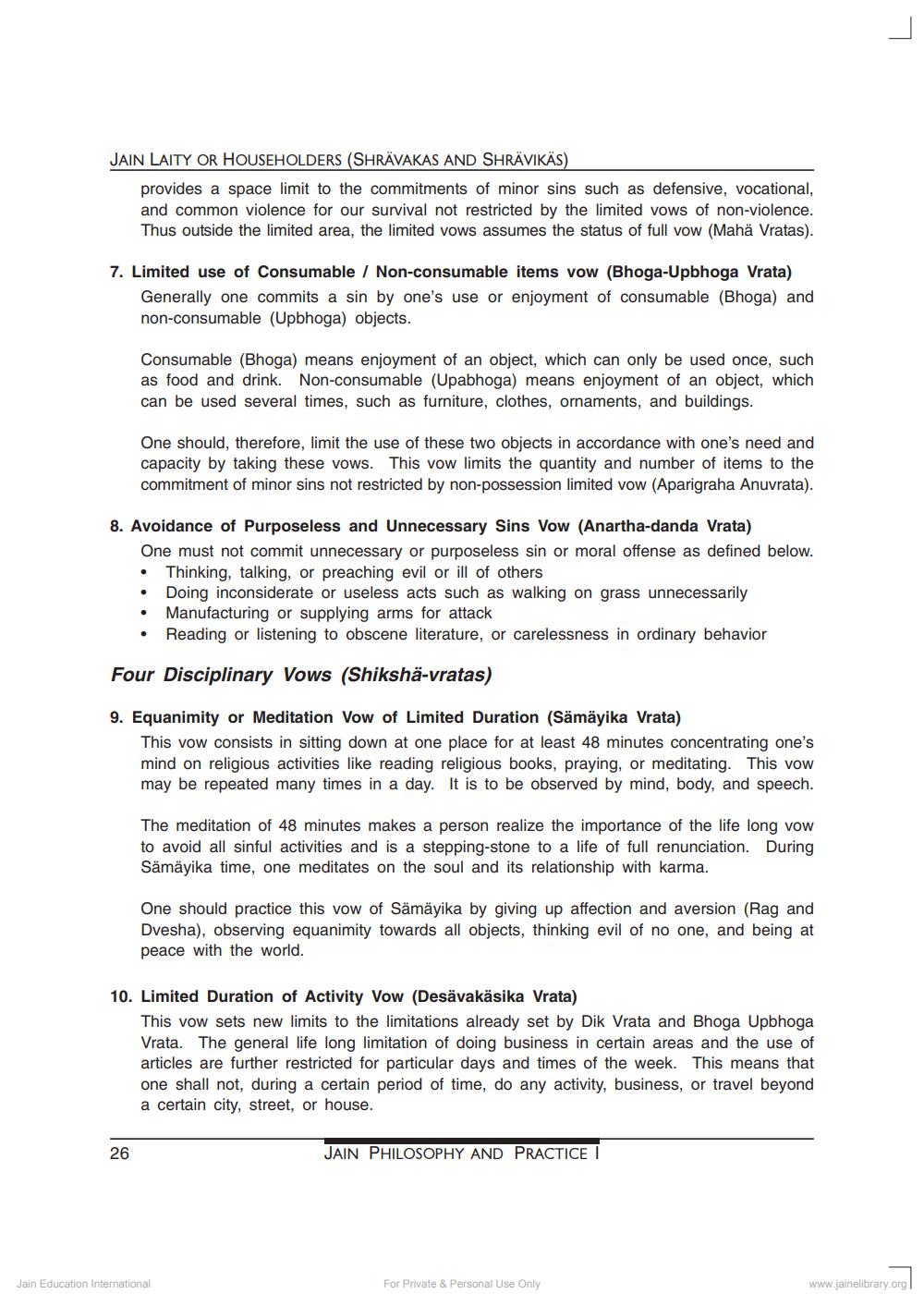________________
JAIN LAITY OR HOUSEHOLDERS (SHRÄVAKAS AND SHRÄVIKÄS)
provides a space limit to the commitments of minor sins such as defensive, vocational, and common violence for our survival not restricted by the limited vows of non-violence. Thus outside the limited area, the limited vows assumes the status of full vow (Mahä Vratas).
7. Limited use of Consumable / Non-consumable items vow (Bhoga-Upbhoga Vrata) Generally one commits a sin by one's use or enjoyment of consumable (Bhoga) and non-consumable (Upbhoga) objects.
Consumable (Bhoga) means enjoyment of an object, which can only be used once, such as food and drink. Non-consumable (Upabhoga) means enjoyment of an object, which can be used several times, such as furniture, clothes, ornaments, and buildings.
One should, therefore, limit the use of these two objects in accordance with one's need and capacity by taking these vows. This vow limits the quantity and number of items to the commitment of minor sins not restricted by non-possession limited vow (Aparigraha Anuvrata).
8. Avoidance of Purposeless and Unnecessary Sins Vow (Anartha-danda Vrata) One must not commit unnecessary or purposeless sin or moral offense as defined below. Thinking, talking, or preaching evil or ill of others
Doing inconsiderate or useless acts such as walking on grass unnecessarily Manufacturing or supplying arms for attack
Reading or listening to obscene literature, or carelessness in ordinary behavior
Four Disciplinary Vows (Shikshä-vratas)
9. Equanimity or Meditation Vow of Limited Duration (Sämäyika Vrata)
This vow consists in sitting down at one place for at least 48 minutes concentrating one's mind on religious activities like reading religious books, praying, or meditating. This vow may be repeated many times in a day. It is to be observed by mind, body, and speech.
26
The meditation of 48 minutes makes a person realize the importance of the life long vow to avoid all sinful activities and is a stepping-stone to a life of full renunciation. During Sämäyika time, one meditates on the soul and its relationship with karma.
One should practice this vow of Sämäyika by giving up affection and aversion (Rag and Dvesha), observing equanimity towards all objects, thinking evil of no one, and being at peace with the world.
10. Limited Duration of Activity Vow (Desävakäsika Vrata)
This vow sets new limits to the limitations already set by Dik Vrata and Bhoga Upbhoga Vrata. The general life long limitation of doing business in certain areas and the use of articles are further restricted for particular days and times of the week. This means that one shall not, during a certain period of time, do any activity, business, or travel beyond a certain city, street, or house.
Jain Education International
JAIN PHILOSOPHY AND PRACTICE I
For Private & Personal Use Only
www.jainelibrary.org




